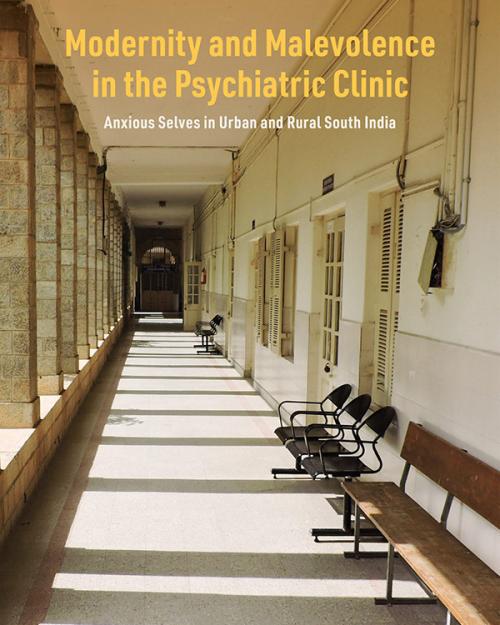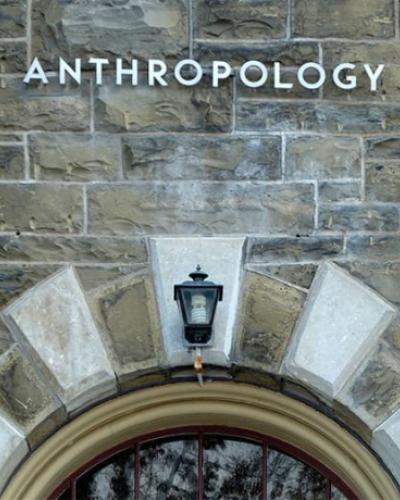There are still seats available in these NEW anthropology courses...
Food and Work
Day/time: MW 11:25am - 12:40pm
Mode: Online
Instructor: Sarah Besky
This course will explore key topics in the critical study of labor and capitalism through the lens of food. Questions of race, gender, and class, but also toxicity, settler colonialism, as well as production and reproduction can all be read in the landscapes of food provision and procurement. Food is the ground for an array of labor processes—planting, harvesting, transporting, serving, and eating, just to name a few. Some of these forms of work are overt (stooped workers toiling in pesticide ridden field, for example). But some of these forms of work are invisible and unpaid. And sometimes, they are incredibly well remunerated but totally shadowy. By studying these different forms of work comparatively, we can understand genealogies and futures of inequality, resource use, and the nature of work itself.
of Global Health
Day/time: TR 1:00pm - 2:15pm
Mode: Online
Instructor: Alex Nading
The term global health refers to an aspiration and a set of problems. As an aspiration, global health seeks to unite biosecurity, humanitarian, and philanthropic efforts to rid the world of disease. Seen as a set of problems, global health is more unruly. Deciding when an epidemic becomes a global emergency, or calculating the economic value of healthy childbirth, is anything but straightforward. Drawing on critical texts from medical anthropology, science studies, and allied fields, this course asks: What is the relationship of global health to colonialism and empire? How do market and political actors shape health interventions? Finally, what is the future for global health in the context of a changing climate?
Carceral Worlds: Policing, Prisons, and Securitization
Day/time: R 12:25pm - 2:20pm
Mode: Online
Instructor: Noah Tamarkin
Grounded in anthropological and interdisciplinary analyses of policing, prisons, and security, this course aims to account for how carcerality shapes our worlds. Attentive to specificity and variability across place and time, we will consider how carceral logics take hold and expand, and how they are contested and reimagined. We will pay particular attention to the interrelatedness of race and carcerality; lived experiences of carcerality, including those of people imprisoned in various contexts and those engaged in carceral work; the intersections between carcerality and science and technology; and abolitionist frameworks that address the limitations and constitutive oppressions of carcerality as they radically reimagine other possibilities.
There are also seats available in these anthropology courses...
Cultural Diversity and Contemporary Issues
Day/time: MW 11:20am - 12:10pm
Mode: Online
Instructor: Natasha Raheja
This course will introduce students to the meaning and significance of forms of cultural diversity for the understanding of contemporary issues. Drawing from films, videos, and selected readings, students will be confronted with different representational forms that portray cultures in various parts of the world, and they will be asked to examine critically their own prejudices as they influence the perception and evaluation of cultural differences. We shall approach cultures holistically, assuming the inseparability of economies, kinship, religion, and politics, as well as interconnections and dependencies between world areas such as Africa, Latin America, the West. Among the issues considered: political correctness and truth; nativism and ecological diversity; race, ethnicity, and sexuality; sin, religion, and war; global process and cultural integrity.
Medicine, Culture, and Society
Day/time: TR 9:40am - 10:55am
Mode: Online
Instructor: Stacey Langwick
Medicine has become the language and practice through which we address a broad range of both individual and societal complaints. Interest in this medicalization of life may be one of the reasons that medical anthropology is currently the fastest-growing subfield in anthropology. This course encourages students to examine concepts of disease, suffering, health, and well-being in their immediate experience and beyond. In the process, students will gain a working knowledge of ecological, critical, phenomenological, and applied approaches used by medical anthropologists. We will investigate what is involved in becoming a doctor, the sociality of medicines, controversies over new medical technologies, and the politics of medical knowledge. The universality of biomedicine, or hospital medicine, will not be taken for granted, but rather we will examine the plurality generated by the various political, economic, social, and ethical demands under which biomedicine has developed in different places and at different times. In addition, biomedical healing and expertise will be viewed in relation to other kinds of healing and expertise. Our readings will address medicine in North America as well as other parts of the world. In class, our discussions will return regularly to consider the broad diversity of kinds of medicine throughout the world, as well as the specific historical and local contexts of biomedicine.
Primate Behavior and Ecology with Emphasis on African Apes
Day/time: MWF 12:25pm - 1:15pm
Mode: Online
Instructor: Adam Arcadi
The course will investigate all aspects of non-human primate life. Based on the fundamentals of evolutionary theory, group and inter-individual behaviors will be presented. In addition, an understanding of group structure and breeding systems will be reached through an evaluation of ecological constraints imposed on primates in different habitats. Subjects include: primate taxonomy, diet and foraging, predation, cooperation and competition, social ontogeny, kinship, and mating strategies.
Culture, Politics, and Environment in the Circumpolar North
Day/time: TR 9:40am - 10:55am
Mode: In person
Instructor: Paul Nadasdy
This course examines the cultures and histories of the circumpolar North. The primary emphasis is on the North American Arctic and Subarctic with some attention to northern Eurasia for comparative purposes. The focus is on the indigenous peoples of the region and the socio-political and ecological dimensions of their evolving relationships with southern industrial societies.





